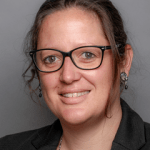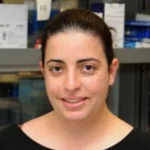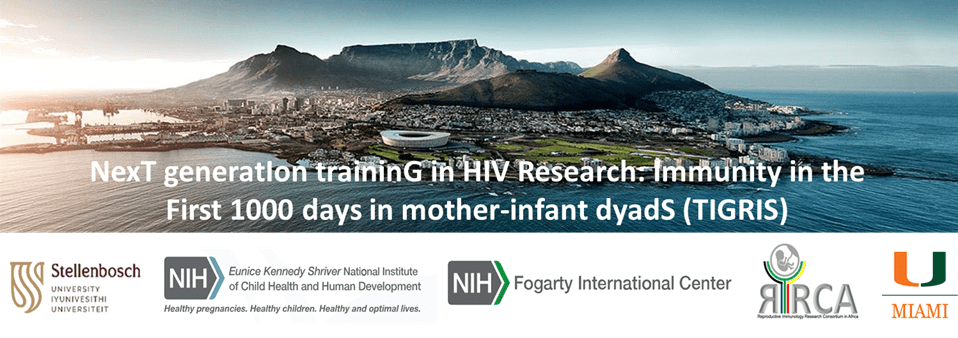Stellenbosch University & The University of Miami are pleased to launch
the TIGRIS D43 training programme
- TIGRIS will enrich an ongoing registered post-graduate degree or post-doctoral fellowship (including an MMed or MPhil).
- Placement will be 3-6 months at collaborating laboratories in Stellenbosch University, UK, Canada or USA.
- The TIGRIS training programme aims to explore the various aspects of immunity in mother-infant dyads to enhance immunology research in Africa and worldwide collaboration.
Eligibility and Application below
Background
Over the last three decades, neonatal deaths have accounted for 45% of under-five mortality in sub-Saharan Africa (SSA) and are not declining despite concerted and multi-faceted efforts. Spontaneous preterm delivery (PTD) accounts for the majority of neonatal morbidity and mortality. The prevalence of adverse birth outcomes (ABO) is markedly higher in areas with high HIV incidence. SSA currently bears the brunt of the global HIV epidemic, with over 33 million people living with HIV; a large proportion of whom are women of childbearing age. In South Africa, although vertical transmission prevention (VTP) with antiretroviral (ARV) therapy has successfully reduced VT to 1-4%, there are over 150,000 HIV-exposed but uninfected (HEU) infants delivered annually. These children experience higher morbidity than their HIV-unexposed uninfected (HUU) counterparts. Morbidity in HEU children may be mitigated by exclusive breastfeeding and initiation of ARVs prior to pregnancy in the universal treatments era. Nevertheless, preterm labor and prematurity rates remain high, and contribute to excessive morbidity and mortality during infancy and childhood.
Based on this background, we offer a collaborative training program in TIGRIS that will explore different aspects of immunity in the mother-infant dyad.
The following leadership and COLLABORATING FACULTY members of TIGRIS offer specific training in techniques or approaches to data analysis pertaining to reproductive, neonatal, and paediatric immunology. Please read through the each of our collaborators and select a potential mentor (or mentors) and if your application is successful, we will endeavour to match you with a mentor for your short-term training period. Make it clear in your motivation which collaborating faculty you may wish to work with and why.
You must be registered at your home institution for either an MSc, PhD, Post-doc or MPhil/MMed to apply for this short term training. This training is designed to enrich and enhance your existing degree.
TIGRIS Leadership
Director: Clive M Gray
 Dr Gray is co-PI of TIGRIS and is Professor in the Division of Immunology at Stellenbosch University. He has >25 years experience in HIV immunology research and has been involved in characterizing cellular immunity to many aspects of HIV infection and those who are at risk of becoming infected, or exposed to HIV but remain uninfected. He has initiated a Reproductive Immunology Research Consortium in Africa (RIRCA) at SU to understand how the ontogeny of infant immunity is affected by placental dysfunction, especially when the pregnant mother is living with HIV.
Dr Gray is co-PI of TIGRIS and is Professor in the Division of Immunology at Stellenbosch University. He has >25 years experience in HIV immunology research and has been involved in characterizing cellular immunity to many aspects of HIV infection and those who are at risk of becoming infected, or exposed to HIV but remain uninfected. He has initiated a Reproductive Immunology Research Consortium in Africa (RIRCA) at SU to understand how the ontogeny of infant immunity is affected by placental dysfunction, especially when the pregnant mother is living with HIV.
RIRCA – Reproductive Immunology Research Consortium in Africa
Associate Director: Rana Chakraborty
Dr. Chakraborty is a physician-scientist specializing in pediatric infectious disease with expertise caring for children and adolescents affected by HIV and is co-PI of TIGRIS. He has experience in perinatal, pediatric, and adolescent infectious diseases leadership in clinical trials conduct, and a strong track record in funding as a PI through the NIH, CDC, and Medical Research Council (MRC-UK), in clinical, translational, and lab-based research. His lab has unique expertise in placental immunology and has characterized and published on infection of trophoblasts, cord blood mononuclear cells (CBMCs) and placental macrophages (Hofbauer cells – HCs) with HIV-1, HCMV and ZIKV. His group were the first to demonstrate that ZIKV infects and replicates in primary human HCs.
Rana Chakraborty Miller School of Medicine
Collaborating Faculty
Lisa Bebell
Lisa Bebell is an Associate Professor at Harvard Medical School and Physician at Massachusetts General Hospital, specializing in infectious diseases and critical care medicine for adults. Her research focuses on immune transfer during pregnancy and the postpartum period, growth, neurodevelopment, and immune development in HIV-exposed children, and placental structure and function in people with HIV. She collaborates with Dr Gray and also with Dr Lena Serghides at the University of Toronto’s University Health Network.
Location: Boston, Massachusetts, USA
Specialist areas: HIV, pregnancy, placenta, peripartum infections, child health outcomes, antiretroviral medications
Possible projects on offer:
- Secondary data analysis:Data collected from well-characterized mother-child dyad birth cohorts with clinical, laboratory, multi’omics, and outcomes data. Data are available from 3 large Uganda-based birth cohorts with some overlapping, and some unique data for each cohort. Follow-up varied from 6 weeks’ to 6 years’ child age and include women living with and without HIV and their children.
- Laboratory analysis of existing samples: A large biobank of maternal blood and blood products, placenta, umbilical cord blood and blood products, neonatal/infant/child blood and blood products, child stool samples, amongst others. Samples were collected from mother-child dyad birth cohorts with corresponding clinical, laboratory, multi’omics, and outcomes data. Samples were collected as part of a 750-dyad prospective Uganda-based birth cohort with follow-up through child age 6 years. Limited funding is available for sample analysis but new grant proposals could be written to allow for additional analysis.
- New sub-projects: New projects could be nested within our ongoing longitudinal cohort study in Uganda. The cohort is a 750-dyad birth cohort with follow-up through child age 6 years. New projects could include data and/or sample collection from enrolled women and/or their children aged 1 – 6 years.
Lisa Bebell, M.D. | Mass General Research Institute
Guido Ferrari
 Guido Ferrari is Professor of Surgery at Duke University and in the Department Molecular Genetics and Microbiology. He is also affiliated faculty at the Duke Global Health Institute, Duke Human Vaccine Institute, and Honorary Professor at the UCT Department of Immunology. Since 1995 Dr. Ferrari has been evaluating vaccine-induced cytotoxic T lymphocyte (CTL) and antibody dependent cellular cytotoxic (ADCC) responses for the development of AIDS vaccines. Dr. Ferrari has also been the Director of the Center for AIDS Research Immunology Core and of ADCC core laboratory for the Primate AIDS Vaccine Evaluation Group (PAVEG). Dr. Ferrari is the co-director of the Interdisciplinary Research Training Programs in AIDS T32 and was awarded the 2021 Translational Science Mentoring Award by the Duke School of Medicine for outstanding leadership in mentoring.
Guido Ferrari is Professor of Surgery at Duke University and in the Department Molecular Genetics and Microbiology. He is also affiliated faculty at the Duke Global Health Institute, Duke Human Vaccine Institute, and Honorary Professor at the UCT Department of Immunology. Since 1995 Dr. Ferrari has been evaluating vaccine-induced cytotoxic T lymphocyte (CTL) and antibody dependent cellular cytotoxic (ADCC) responses for the development of AIDS vaccines. Dr. Ferrari has also been the Director of the Center for AIDS Research Immunology Core and of ADCC core laboratory for the Primate AIDS Vaccine Evaluation Group (PAVEG). Dr. Ferrari is the co-director of the Interdisciplinary Research Training Programs in AIDS T32 and was awarded the 2021 Translational Science Mentoring Award by the Duke School of Medicine for outstanding leadership in mentoring.
Location: Duke University Medical Center
Specialist areas: Fc-FcR interaction-based immune responses
Possible projects on offer: TBC
Guido Ferrari | Duke Department of Surgery
Catherine Blish
Catherine Blish, based at Stanford University, focuses her work on the identity of immune pathways that lead to protective immunity versus immunopathology. Dr. Blish leads a research team aiming to use this knowledge to try to turn a pathogenic immune response into a protective one and has worked to profile the ontogeny of the infant immune system. Her lab’s recent in vivo multi-omic single-cell immune profiling characterizes COVID-19 patients across the full range of disease severity, from outpatients with mild disease to fatal cases. They have similar data from other infectious diseases including HIV and SIV. To enhance ability to understand the mechanisms underlying viral pathogenesis, she evaluates viral pathogenesis in peripheral blood mononuclear cells, human lung organoids, intact human lung slices, and additional primary culture systems to model interactions between infected and immune cells. Several of these datasets are available for analysis; others are in process and her lab can contribute to training and development in computational techniques to assess immune function.
Catherine Blish Lab | Stanford Medicine
Heather Jaspan
 Heather Jaspan, based at both Seattle Childrens Research Institute and University of Cape Town (UCT), is MD, PhD and is an Associate Professor of Pediatric Infectious Diseases in the School of Medicine and of Global Health, School of Public Health, University of Washington. She is a Member of the Center for Global Infectious Disease Research at Seattle Children’s Research Institute. She is also a Member of the Institute of Infectious Diseases and Molecular Medicine and an Honorary Research Associate in the Division of Immunology, UCT. Her labs, both in Cape Town, South Africa and Seattle, USA, utilize mouse models, human cohorts and clinical trials to interrogate translational immunology and microbiology of mucosal surfaces, including the infant gut and the male and female genital tracts, with a further focus on infant immune ontogeny.
Heather Jaspan, based at both Seattle Childrens Research Institute and University of Cape Town (UCT), is MD, PhD and is an Associate Professor of Pediatric Infectious Diseases in the School of Medicine and of Global Health, School of Public Health, University of Washington. She is a Member of the Center for Global Infectious Disease Research at Seattle Children’s Research Institute. She is also a Member of the Institute of Infectious Diseases and Molecular Medicine and an Honorary Research Associate in the Division of Immunology, UCT. Her labs, both in Cape Town, South Africa and Seattle, USA, utilize mouse models, human cohorts and clinical trials to interrogate translational immunology and microbiology of mucosal surfaces, including the infant gut and the male and female genital tracts, with a further focus on infant immune ontogeny.
Tamara Tilburgs
 Tamara Tilburgs is an Assistant Professor at Cincinnati Children’s Hospital Medical Center, where she investigates how maternal immune cells at the maternal-fetal interface establish tolerance to fetal antigens while at the same time maintaining immunity to viral and bacterial infections. Dr. Tilburgs recently received awards from Burroughs Wellcome Fund, March of Dimes and CCHMC Research Foundation. She has published >30 peer-reviewed papers in the area of human reproductive immunology in high impact journals including Cell, Cell Reports, PNAS and the Journal of Immunology. She has a more specific scientific production in the field of immune regulatory mechanisms by HLA-G+/C+ extravillous trophoblasts and decidual regulatory T cells as well as decidual NK cell and CD8+ effector T cell responses to placental and viral antigens. These findings are transforming the current understanding of how interactions between fetal trophoblasts and maternal immune cells provide immune tolerance to fetal and placental allo-antigens as well as immunity to infections.
Tamara Tilburgs is an Assistant Professor at Cincinnati Children’s Hospital Medical Center, where she investigates how maternal immune cells at the maternal-fetal interface establish tolerance to fetal antigens while at the same time maintaining immunity to viral and bacterial infections. Dr. Tilburgs recently received awards from Burroughs Wellcome Fund, March of Dimes and CCHMC Research Foundation. She has published >30 peer-reviewed papers in the area of human reproductive immunology in high impact journals including Cell, Cell Reports, PNAS and the Journal of Immunology. She has a more specific scientific production in the field of immune regulatory mechanisms by HLA-G+/C+ extravillous trophoblasts and decidual regulatory T cells as well as decidual NK cell and CD8+ effector T cell responses to placental and viral antigens. These findings are transforming the current understanding of how interactions between fetal trophoblasts and maternal immune cells provide immune tolerance to fetal and placental allo-antigens as well as immunity to infections.
Sonwabile Dzanibe
Sonwabile Dzanibe is based at UCT, where his research focuses on understanding how factors such as HIV exposure influence immune development and maturation during infancy, particularly in relation to infection susceptibility and vaccine responsiveness. His research group employs high-end multicolour cytometry and proteomics to identify immune markers associated with heightened infection risk and suboptimal vaccine responses in infants. These findings are used to inform and guide vaccine design and development strategies. A key area of his work involves developing novel techniques to measure vaccine-specific antibody responses and B cell development. This aims to determine whether HIV exposure compromises humoral immunity, potentially contributing to higher infection rates in HIV-exposed uninfected (HEU) infants.
Location: Division of Immunology, University of Cape Town
Specialist areas: Systems serology and Vaccinology
Possible projects on offer: Development of high-throughput antigen-specific B cell isolation platform.
Dr Sonwabile Dzanibe | Institute of Infectious Disease and Molecular Medicine
Elizabeth Enninga
 Elizabeth Enninga, based at the Mayo Clinic, focuses her research on the regulation of the mother’s immune system to a fetus that has a combination of traits from each parent (semi-allogeneic fetus) during pregnancy, and whether there are differences in the maternal immune response based on the sex of the fetus in utero. This includes studying the local (placenta) and systemic (blood) immune response during gestation. Large datasets for analyses include: 1) cell-free fetal DNA genomic sequencing, 2) longitudinal proteomic data on plasma from pregnant mothers, and 3) transcriptomic data on T cell receptors from infectious and non-infectious inflamed placentae.
Elizabeth Enninga, based at the Mayo Clinic, focuses her research on the regulation of the mother’s immune system to a fetus that has a combination of traits from each parent (semi-allogeneic fetus) during pregnancy, and whether there are differences in the maternal immune response based on the sex of the fetus in utero. This includes studying the local (placenta) and systemic (blood) immune response during gestation. Large datasets for analyses include: 1) cell-free fetal DNA genomic sequencing, 2) longitudinal proteomic data on plasma from pregnant mothers, and 3) transcriptomic data on T cell receptors from infectious and non-infectious inflamed placentae.
Location: Rochester, Minnesota, USA
Specialist areas: Reproductive immunology, placental pathology, inflammation, cell free fetal DNA
Possible projects on offer: T cell and trophoblast interactions in villitis of unknown etiology, innate immune responses to cell free fetal DNA, ultrasound imaging for placental pathologies, digital pathology applied to the placenta, fetal programming following inflammation in utero.
Elizabeth Ann L. Enninga, Ph.D. – Mayo Clinic
Fernando Martinez Estrada
 Fernando Martinez Estrada, based at the University of Surrey, UK, is an expert of macrophages and is a senior lecturer in the Department of Biological Sciences. His main line of work is towards demonstrating the power of inhibiting macrophages in disease. The main emphasis of his research group is the investigation of foam cells and macrophages. His work encompasses three key areas, with a strong component dedicated to elucidating the role of Macrophage Colony Stimulating Factor Receptor (CSF1R+) and other human mononuclear phagocyte system lineage receptors in the placenta. He has developed in vitro and ex vivo systems for advanced molecular and cellular biology studies to aid the identification of functional properties of CSF1R+ cells as they adapt to different aberrant pathological environments.
Fernando Martinez Estrada, based at the University of Surrey, UK, is an expert of macrophages and is a senior lecturer in the Department of Biological Sciences. His main line of work is towards demonstrating the power of inhibiting macrophages in disease. The main emphasis of his research group is the investigation of foam cells and macrophages. His work encompasses three key areas, with a strong component dedicated to elucidating the role of Macrophage Colony Stimulating Factor Receptor (CSF1R+) and other human mononuclear phagocyte system lineage receptors in the placenta. He has developed in vitro and ex vivo systems for advanced molecular and cellular biology studies to aid the identification of functional properties of CSF1R+ cells as they adapt to different aberrant pathological environments.
Dr Fernando Martinez Estrada | University of Surrey
Genevieve Fouda
Genevieve Fouda, based at Weill/Cornell is a Professor of Pediatrics and Assistant Dean for Faculty Development at that institution. Her research focuses on understanding the early-life immune system, with the goal of developing immune-based strategies against infectious diseases that are specifically tailored to pediatric populations. She uses specimens from human clinical studies as well as animal models to address questions related to antibody development following HIV natural infection or vaccination and to examine the potential impact of immune-based interventions on HIV virus rebound. Her group is notably interested in understanding the development of broadly neutralizing antibodies in children and how to elicit this type of response through vaccination. In addition, her group is investigating passive immunization with broadly neutralizing antibodies as a strategy to prevent and/or treat pediatric HIV. She also recently started working on comparing SARS CoV-2 specific antibody responses between children and adults.
Location: Weill Cornell Medicine, New York
Specialist areas: Antibody measurement
Possible projects on offer: 1) Characterization of mAbs isolated from children living with HIV; 2) Passive immunization with bnAbs in pediatric settings.
Genevieve G. Fouda | Fouda Lab
Erica Johnson
Erica Johnson is an Associate Professor of Microbiology, Biochemistry, and Immunology/ OB-GYN at Morehouse School of Medicine. Her research focuses on understanding correlates of fetal protection during pregnancy, defining mechanisms of natural immune control and determining how these can be exploited to develop interventions that reduce or prevent negative outcomes during pregnancy or in the infant. Her lab also investigates the impact of maternal stressors on epigenetic modification in the mother-infant dyad during pregnancy. Dr. Johnson’s studies have advanced the understanding of placental immunology during gestation, innate protection against MTCT of HIV, HCMV, SARS-CoV-2 and ZIKV, along with neonatal immune responses to maternal inflammation and viral infections. Her current research goals are to (1) define the dynamics of innate immune signaling in macrophages at the maternal-fetal interface and their control of HIV and HCMV during pregnancy; (2) determine the mechanisms by which maternal HCMV promotes in utero HIV transmission; and (3) elucidate the impact of maternal exposures (viral infections or stressors) and co-morbidities (BMI or hypertension) on the placenta and developing fetal immune system.
Location: Morehouse School of Medicine – Atlanta, GA
Specialist areas: Placental Immunology and innate immunity
Possible Projects:
To investigate the impact of STAT signaling on placental macrophage function, regulation of innate immunity, and the generation of antiviral and/or proinflammatory immune responses.
Sarah Rowland Jones
Sarah Rowland Jones is based at University of Oxford, works closely with epidemiologists studying HIV cohorts in Africa to use laboratory techniques to investigate protective immunity and disease pathogenesis. Currently her group focuses on pathogenesis of the comorbidities seen in older children with perinatal HIV infection and has large datasets of biomarkers and other laboratory data from several cohort studies and clinical trials conducted in Zimbabwe. She also studies protective immune responses in HIV-2 infection with collaborators in West Africa, Sweden, and Japan. More recently her group has been studying T-cell responses to SARS-CoV-2 in healthcare workers following infection and vaccination.
Sarah Rowland-Jones — Nuffield Department of Medicine
Loke Centre for Trophoblast Research (CTR), University of Cambridge, UK
This consortium of investigators investigate the function of genes that regulate human embryo development, discovering gene regulatory networks specific to human embryos and developing novel techniques for the propagation of placental organoids. The Loke CTR also has specific expertise in epigenetics and genomic imprinting, single cell and spatial multi-omics analysis, development and stem cell biology, metabolism, trophoblast stem cell biology and placental and foetal physiology. There are 30 principal investigators and placement will be based in the applicants proposal.
Loke Centre for Trophoblast Research
Doty Ojwach
 Doty Ojwach, is an early career research fellow in the Reproductive Immunology Research Consortium in Africa at SU. Her research has made substantial contributions to elucidate the intricate dynamics between immune-driven viral escape variants, viral fitness, and HIV disease progression. She used advanced structural protein modeling and rigorous functional assays, to provide mechanistic insights into how HLA-linked attenuated HIV mutations, associated to decreased HIV-1 replication, conferred clinical benefits through their impact on HIV reverse transcription. Her current research focuses on placental macrophages, Hobauer Cells, and Factor XIIIa expression in the context of pre-term birth and small for gestational age.
Doty Ojwach, is an early career research fellow in the Reproductive Immunology Research Consortium in Africa at SU. Her research has made substantial contributions to elucidate the intricate dynamics between immune-driven viral escape variants, viral fitness, and HIV disease progression. She used advanced structural protein modeling and rigorous functional assays, to provide mechanistic insights into how HLA-linked attenuated HIV mutations, associated to decreased HIV-1 replication, conferred clinical benefits through their impact on HIV reverse transcription. Her current research focuses on placental macrophages, Hobauer Cells, and Factor XIIIa expression in the context of pre-term birth and small for gestational age.
Location: Stellenbosch University, South Africa
Specialist Areas:
HIV replication, host-virus interaction, macrophages. Current research focuses on placental macrophages (Hofbauer cells) and Factor XIIIa (F13A1) expression in pre-term birth and other adverse birth outcomes.
Available Project: F13A1 in Macrophage Function & Placental Health in HIV+ Pregnancies
Coagulation factor XIII A1 (F13A1) plays a key role in immune regulation and macrophage function. However, its differential expression in M1 vs. M2 macrophages and its impact on placental health in HIV+ and ART-exposed pregnancies remain unclear.
Sallie Permar
 Sallie Permar, based at Weill/Cornell, is a pediatric infectious disease physician-scientist and Chair of the Department of Pediatrics at New York Presbyterian/Weill Cornell Medical Center. She specializes in prevention and treatment of perinatal viral infections. As a translational viral immunologist, her work seeks to define immune responses required for protection of neonates against vertical transmission of viral pathogens such as HIV, CMV, Zika, Rotavirus, and SARS-CoV-2. She has studied the maternal and infant innate and adaptive immune responses associated with low risk of infant infection and worked to develop vaccines that elicit these responses and test their efficacy in nonhuman primate models of mother to child virus transmission. She leads a P01 grant focused on preclinical investigations of early life HIV vaccine strategies to induce broadly-neutralizing antibodies as well as a P01 grant focused on defining the immunologic and viral determinants of congenital CMV transmission in the nonhuman primate model. Finally, she is involved in clinical trials of candidate infant HIV-1 vaccines in HIV-exposed infants, translating findings from the preclinical research setting into the clinical arena. Patient and immunological data from these studies are available for bioinformatic analysis by trainees.
Sallie Permar, based at Weill/Cornell, is a pediatric infectious disease physician-scientist and Chair of the Department of Pediatrics at New York Presbyterian/Weill Cornell Medical Center. She specializes in prevention and treatment of perinatal viral infections. As a translational viral immunologist, her work seeks to define immune responses required for protection of neonates against vertical transmission of viral pathogens such as HIV, CMV, Zika, Rotavirus, and SARS-CoV-2. She has studied the maternal and infant innate and adaptive immune responses associated with low risk of infant infection and worked to develop vaccines that elicit these responses and test their efficacy in nonhuman primate models of mother to child virus transmission. She leads a P01 grant focused on preclinical investigations of early life HIV vaccine strategies to induce broadly-neutralizing antibodies as well as a P01 grant focused on defining the immunologic and viral determinants of congenital CMV transmission in the nonhuman primate model. Finally, she is involved in clinical trials of candidate infant HIV-1 vaccines in HIV-exposed infants, translating findings from the preclinical research setting into the clinical arena. Patient and immunological data from these studies are available for bioinformatic analysis by trainees.
Location: New York, New York, Weill Cornell Medicine
Specialist areas: Pediatrics, Infectious Diseases, CMV, HIV, Vaccines
Possible projects on offer: Immune correlates of protection against congenital CMV, early life HIV immunization
Sallie Permar – Cornell Center for Antimicrobial Resistance Research & Education
Helena Rabie
Helena Rabie is a specialist in pediatric infectious diseases and Head of Division of Pediatric Infectious Diseases Stellenbosch University Tygerberg Children’s Hospital, Cape Town. She has a broad background in pediatrics, with expertise in general pediatrics, pediatric infectious diseases, and clinical pharmacology. She has knowledge about the clinical diagnosis and management of congenital infections and has experience in training health workers. She is a member of the NIH sponsored unit, FAMily Centre for Research with Ubuntu (FAMCRU). FAMCRU.
Location: Stellenbosch University, South Africa
Specialist areas: Clinical care of children with infectious diseases, tuberculosis and HIV
Possible projects on offer: We can develop projects around clinical and laboratory data of hospitalized children with HIV, and CMV
Lena Serghides
 Lena Serghides is an Associate Professor in the Department of Immunology, University of Toronto. Her laboratory’s research is focused on understanding the mechanisms that contribute to the increased risk for adverse pregnancy outcomes in women with HIV, and on understanding the long-term effects of in utero exposure to HIV antiretrovirals (ARVs). Her research is motivated by the goal of optimizing maternal and infant health in the context of infections of global health importance. Specifically, her lab is currently investigating the impact of HIV infection and HIV antiretroviral therapy on placentation, placenta vascular formation, and hormonal regulation during pregnancy, and how these relate to adverse birth outcomes including low birthweight, small for gestational age, and pre-term birth, and how they influence long-term offspring health including neurocognitive development and metabolic health.
Lena Serghides is an Associate Professor in the Department of Immunology, University of Toronto. Her laboratory’s research is focused on understanding the mechanisms that contribute to the increased risk for adverse pregnancy outcomes in women with HIV, and on understanding the long-term effects of in utero exposure to HIV antiretrovirals (ARVs). Her research is motivated by the goal of optimizing maternal and infant health in the context of infections of global health importance. Specifically, her lab is currently investigating the impact of HIV infection and HIV antiretroviral therapy on placentation, placenta vascular formation, and hormonal regulation during pregnancy, and how these relate to adverse birth outcomes including low birthweight, small for gestational age, and pre-term birth, and how they influence long-term offspring health including neurocognitive development and metabolic health.
Location: Toronto General Hospital Research Institute, University Health Network, Toronto, Canada
Specialist areas: animal models of HIV/ART in pregnancy, HIV/ART and placenta and fetal development, placenta explant models
Possible projects on offer: 1) ARV effects on placental nutrient transport 2) in utero HIV exposure and fetal neuro-inflammation (animal model).
Eligibility
- Your project must be HIV-related in the mother and infant space
- You should be an African student registered for an MSc, PhD, PDF’s or MMed/MPhil student in South Africa, Uganda, Malawi, Benin or Kenya.
- Submit a 500-word project description, a 200-word career motivation statement and a letter of recommendation by your current PI/supervisor and a NIH Biosketch (Max 4 Pages) – Info on NIH Biosketches
HOW TO APPLY
Download the Application PDF, fill it in carefully and in FULL
(incomplete applications will be rejected)
Note: This is a PDF Form – fill in the boxes in Adobe Acrobat (not in a browser)
Save your PDF as your Firstname-Lastname.pdf
(max 2MB)



















